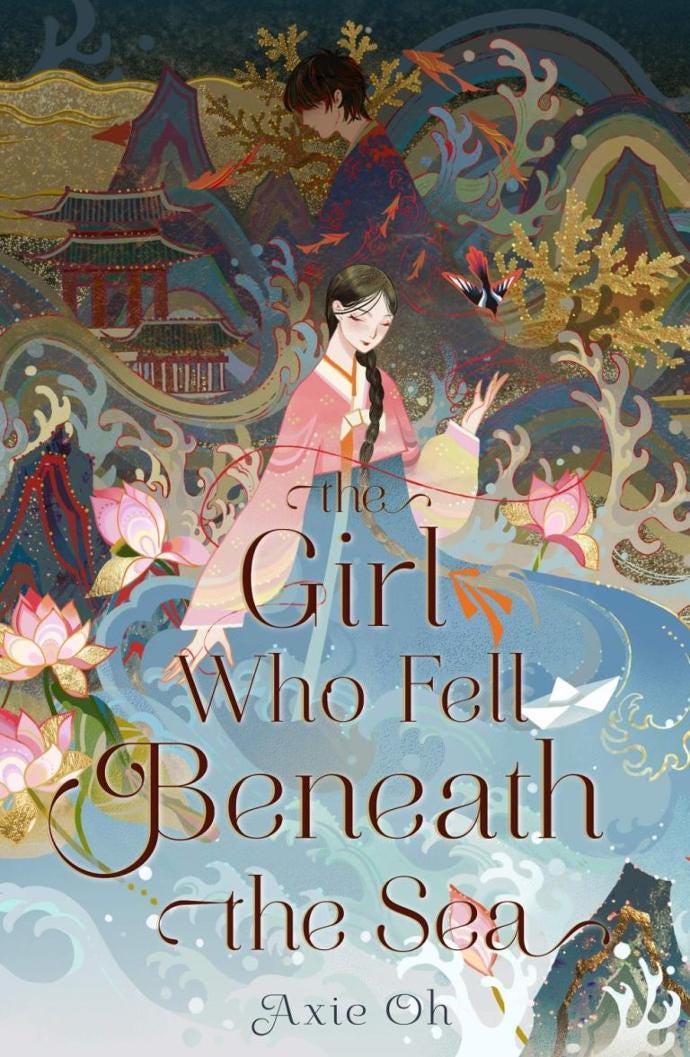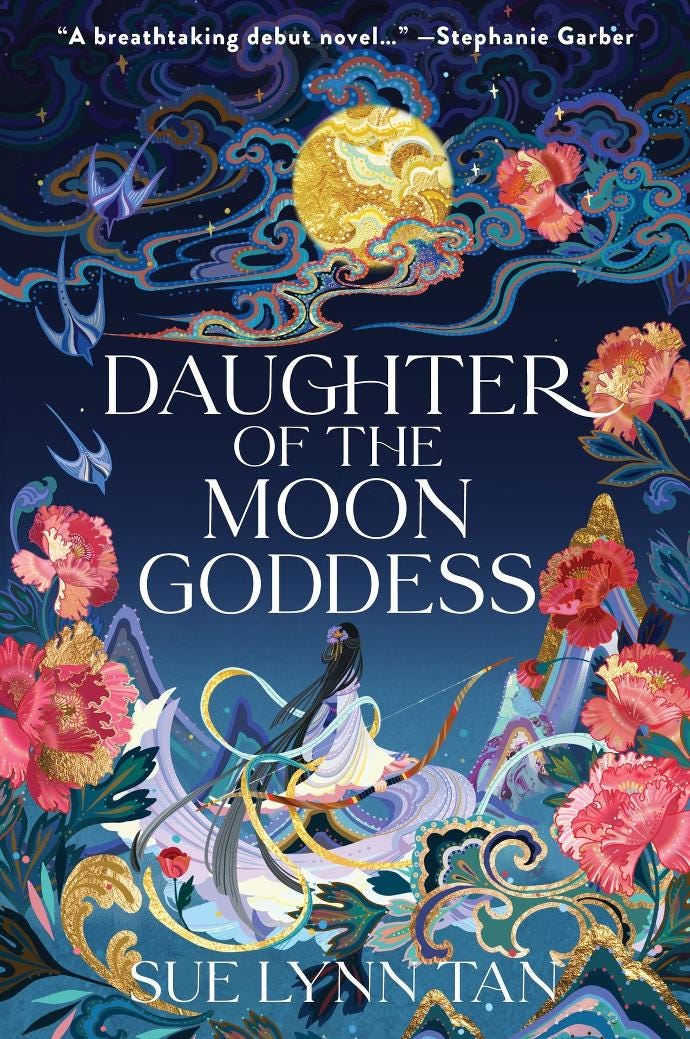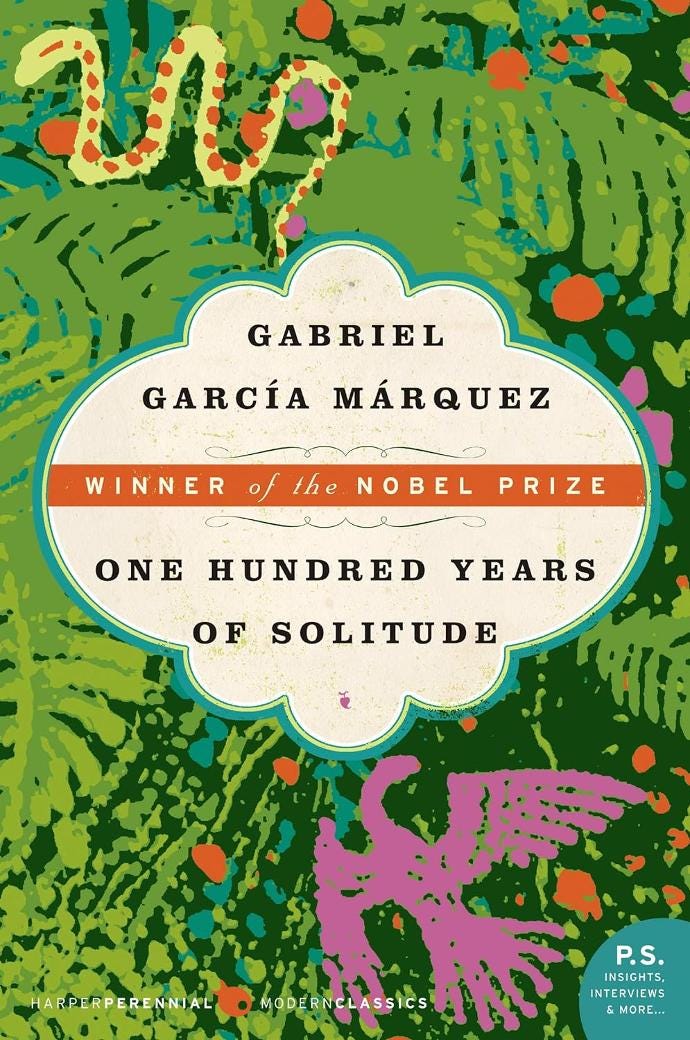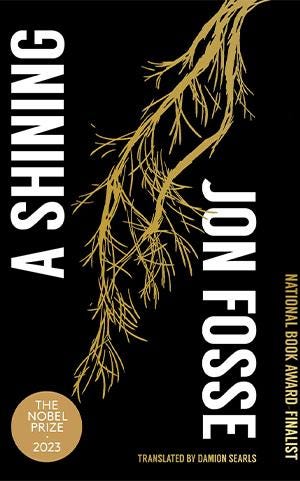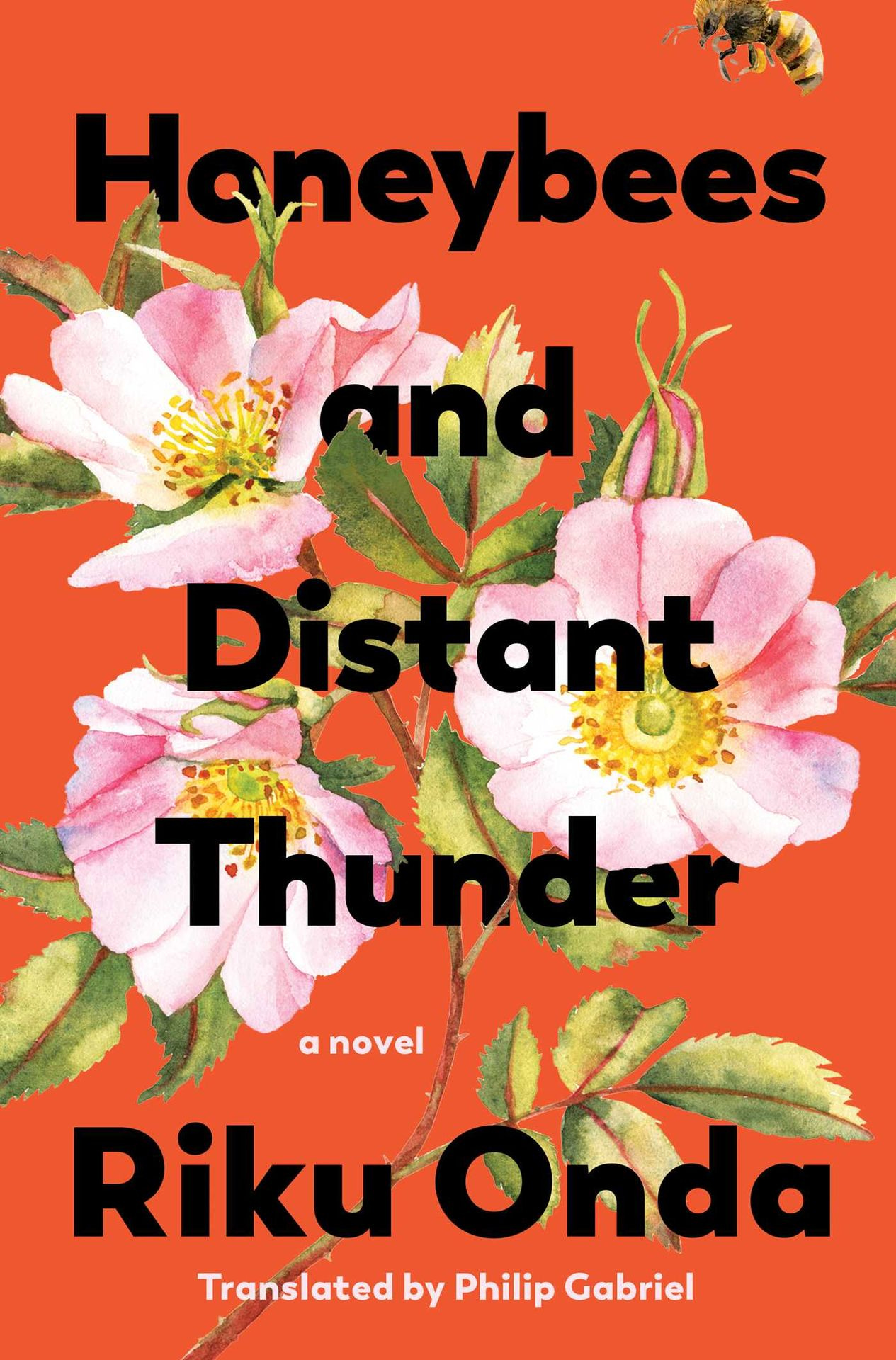We love books. So, we will now start offering book recommendations to help you choose some of the best books out there. Not all of them are recently published. However, many of them are major prize winners (Pulitzer, Nobel, etc.). We think how you spend your time matters. Spending time with quality reading is one of the best possible things you can do for yourself. All of the narratives written below the book covers are taken from the sales page. All purchases support local bookstores near you.
Trust
WINNER OF THE PULITZER PRIZE FOR FICTION
A NEW YORK TIMES BESTSELLER
ONE OF THE NEW YORK TIMES TOP TEN BOOKS OF 2022
ONE OF BARACK OBAMA'S FAVORITE BOOKS OF 2022
LONGLISTED FOR THE 2022 BOOKER PRIZE
"Buzzy and enthralling ...A glorious novel about empires and erasures, husbands and wives, staggering fortunes and unspeakable misery...Fun as hell to read." --Oprah Daily
"A genre-bending, time-skipping story about New York City's elite in the roaring '20s and Great Depression."--Vanity Fair
"A riveting story of class, capitalism, and greed." --Esquire
"Exhilarating." --New York Times
Even through the roar and effervescence of the 1920s, everyone in New York has heard of Benjamin and Helen Rask. He is a legendary Wall Street tycoon; she is the daughter of eccentric aristocrats. Together, they have risen to the very top of a world of seemingly endless wealth--all as a decade of excess and speculation draws to an end. But at what cost have they acquired their immense fortune? This is the mystery at the center of Bonds, a successful 1937 novel that all of New York seems to have read. Yet there are other versions of this tale of privilege and deceit.
Hernan Diaz's TRUST elegantly puts these competing narratives into conversation with one another--and in tension with the perspective of one woman bent on disentangling fact from fiction. The result is a novel that spans over a century and becomes more exhilarating with each new revelation.
At once an immersive story and a brilliant literary puzzle, TRUST engages the reader in a quest for the truth while confronting the deceptions that often live at the heart of personal relationships, the reality-warping force of capital, and the ease with which power can manipulate facts.
The Girl Who Fell Beneath the Sea
A New York Times Bestseller!
Axie Oh's The Girl Who Fell Beneath the Sea is an enthralling feminist retelling of the classic Korean folktale "The Tale of Shim Cheong," perfect for fans of Wintersong, Uprooted, and Miyazaki's Spirited Away.
Deadly storms have ravaged Mina's homeland for generations. Floods sweep away entire villages, while bloody wars are waged over the few remaining resources. Her people believe the Sea God, once their protector, now curses them with death and despair. In an attempt to appease him, each year a beautiful maiden is thrown into the sea to serve as the Sea God's bride, in the hopes that one day the "true bride" will be chosen and end the suffering.
Many believe that Shim Cheong, the most beautiful girl in the village--and the beloved of Mina's older brother Joon--may be the legendary true bride. But on the night Cheong is to be sacrificed, Joon follows Cheong out to sea, even knowing that to interfere is a death sentence. To save her brother, Mina throws herself into the water in Cheong's stead.
Swept away to the Spirit Realm, a magical city of lesser gods and mythical beasts, Mina seeks out the Sea God, only to find him caught in an enchanted sleep. With the help of a mysterious young man named Shin--as well as a motley crew of demons, gods and spirits--Mina sets out to wake the Sea God and bring an end to the killer storms once and for all.
But she doesn't have much time: A human cannot live long in the land of the spirits. And there are those who would do anything to keep the Sea God from waking...
Praise for The Girl Who Fell Beneath the Sea:
An ABA Indie Bestseller
"On every page I found something marvelous and new, and I was eager to keep reading because I wanted to further explore this wondrous new world." --The New York Times
"A beautiful, mesmerizing retelling I wish I'd had when I was growing up. ... A heartfelt tale that I will be recommending for years to come." --Elizabeth Lim, New York Times-bestselling author of Six Crimson Cranes
"A clever, creative, and exquisitely written tale of sacrifice, love, and fate." --Stephanie Garber, New York Times-bestselling author of Caraval
Daughter of the Moon Goddess
The acclaimed national and international bestseller
"Epic, romantic, and enthralling from start to finish."--Stephanie Garber, #1 New York Times bestselling author of the Caraval series
"An all-consuming work of literary fantasy that is breathtaking both for its beauty and its suspense."--BookPage, starred review
A captivating and romantic debut epic fantasy inspired by the legend of the Chinese moon goddess, Chang'e, in which a young woman's quest to free her mother pits her against the most powerful immortal in the realm.
Growing up on the moon, Xingyin is accustomed to solitude, unaware that she is being hidden from the feared Celestial Emperor who exiled her mother for stealing his elixir of immortality. But when Xingyin's magic flares and her existence is discovered, she is forced to flee her home, leaving her mother behind.
Alone, powerless, and afraid, she makes her way to the Celestial Kingdom, a land of wonder and secrets. Disguising her identity, she seizes an opportunity to learn alongside the emperor's son, mastering archery and magic, even as passion flames between her and the prince.
To save her mother, Xingyin embarks on a perilous quest, confronting legendary creatures and vicious enemies. But when treachery looms and forbidden magic threatens the kingdom, she must challenge the ruthless Celestial Emperor for her dream--striking a dangerous bargain in which she is torn between losing all she loves or plunging the realm into chaos.
Daughter of the Moon Goddess begins an enchanting duology which weaves ancient Chinese mythology into a sweeping adventure of immortals and magic, of loss and sacrifice--where love vies with honor, dreams are fraught with betrayal, and hope emerges triumphant.
A Thousand Splendid Suns
Propelled by the same superb instinct for storytelling that made The Kite Runner a beloved classic, the #1 New York Times bestseller A Thousand Splendid Suns is at once an incredible chronicle of thirty years of Afghan history and a deeply moving story of family, friendship, faith, and the salvation to be found in love.
"Just as good, if not better, than Khaled Hosseini's best-selling first book, The Kite Runner."--Newsweek
Khaled Hosseini returns with a beautiful, riveting, and haunting novel that confirms his place as one of the most important literary writers today.
Born a generation apart and with very different ideas about love and family, Mariam and Laila are two women brought jarringly together by war, by loss and by fate. As they endure the ever escalating dangers around them-in their home as well as in the streets of Kabul-they come to form a bond that makes them both sisters and mother-daughter to each other, and that will ultimately alter the course not just of their own lives but of the next generation. With heart-wrenching power and suspense, Hosseini shows how a woman's love for her family can move her to shocking and heroic acts of self-sacrifice, and that in the end it is love, or even the memory of love, that is often the key to survival.
A stunning accomplishment, A Thousand Splendid Suns is a haunting, heartbreaking, compelling story of an unforgiving time, an unlikely friendship, and an indestructible love.
The Tiger's Wife
NATIONAL BOOK AWARD FINALIST - NEW YORK TIMES BESTSELLER - "Spectacular . . . [Téa Obreht] spins a tale of such marvel and magic in a literary voice so enchanting that the mesmerized reader wants her never to stop."--Entertainment Weekly
NAMED ONE OF THE TEN BEST BOOKS OF THE YEAR BY Michiko Kakutani, The New York Times - Entertainment Weekly - The Christian Science Monitor - The Kansas City Star - Library Journal
NAMED ONE OF THE BEST BOOKS OF THE YEAR BY The Wall Street Journal - O: The Oprah Magazine - The Economist - Vogue - Slate - Chicago Tribune - The Seattle Times - Dayton Daily News - Publishers Weekly - Alan Cheuse, NPR's All Things Considered
"Stunning . . . a richly textured and searing novel."--Michiko Kakutani, The New York Times
"[Obreht] has a talent for subtle plotting that eludes most writers twice her age, and her descriptive powers suggest a kind of channeled genius. . . . No novel [this year] has been more satisfying."--The Wall Street Journal
"Filled with astonishing immediacy and presence, fleshed out with detail that seems firsthand, The Tiger's Wife is all the more remarkable for being the product not of observation but of imagination."--The New York Times Book Review
"That The Tiger's Wife never slips entirely into magical realism is part of its magic. . . . Its graceful commingling of contemporary realism and village legend seems even more absorbing."--The Washington Post
Weaving a brilliant latticework of family legend, loss, and love, Téa Obreht, the youngest of The New Yorker's twenty best American fiction writers under forty, has spun a timeless novel that will establish her as one of the most vibrant, original authors of her generation.
In a Balkan country mending from years of conflict, Natalia, a young doctor, arrives on a mission of mercy at an orphanage by the sea. By the time she and her lifelong friend Zóra begin to inoculate the children there, she feels age-old superstitions and secrets gathering everywhere around her. Secrets her outwardly cheerful hosts have chosen not to tell her. Secrets involving the strange family digging for something in the surrounding vineyards. Secrets hidden in the landscape itself.
But Natalia is also confronting a private, hurtful mystery of her own: the inexplicable circumstances surrounding her beloved grandfather’s recent death. After telling her grandmother that he was on his way to meet Natalia, he instead set off for a ramshackle settlement none of their family had ever heard of and died there alone. A famed physician, her grandfather must have known that he was too ill to travel. Why he left home becomes a riddle Natalia is compelled to unravel.
Grief struck and searching for clues to her grandfather’s final state of mind, she turns to the stories he told her when she was a child. On their weekly trips to the zoo he would read to her from a worn copy of Rudyard Kipling’s The Jungle Book, which he carried with him everywhere; later, he told her stories of his own encounters over many years with “the deathless man,” a vagabond who claimed to be immortal and appeared never to age. But the most extraordinary story of all is the one her grandfather never told her, the one Natalia must discover for herself. One winter during the Second World War, his childhood village was snowbound, cut off even from the encroaching German invaders but haunted by another, fierce presence: a tiger who comes ever closer under cover of darkness. “These stories,” Natalia comes to understand, “run like secret rivers through all the other stories” of her grandfather’s life. And it is ultimately within these rich, luminous narratives that she will find the answer she is looking for.
The Hotel Tito: A Novel
Winner of the Prix Ulysse for best debut novel in France
Winner in Croatia and the Balkan region of the Kočicevo Pero Award, the Josip and Ivan Kozarac Award, and the Kiklop Award for the best work of fiction.
When the Croatian War of Independence breaks out in her hometown of Vukovar in the summer of 1991 she is nine years old, nestled within the embrace of family with her father, mother, and older brother. She is sent to a seaside vacation to be far from the hostilities. Meanwhile, her father has disappeared while fighting with the Croatian forces. By the time she returns at summer's end everything has changed. Against the backdrop of genocide (the Vukovar hospital massacre) and the devastation of middle-class society within the Yugoslav Federation, our young narrator, now with her mother and brother refugees among a sea of refugees, spends the next six years experiencing her own self-discovery and transformation amid unfamiliar surroundings as a displaced person. As she grows from a nine-year old into a sparkling and wonderfully complicated fifteen-year-old, it is as a stranger in her own land.
Applauded as the finest work of fiction to appear about the Yugoslav Wars, Ivana Bodrožic's The Hotel Tito is at its heart a story of a young girl's coming of age, a reminder that even during times of war--especially during such times--the future rests with those who are the innocent victims and peaceful survivors.
One Hundred Years of Solitude
"One Hundred Years of Solitude is the first piece of literature since the Book of Genesis that should be required reading for the entire human race. . . . Mr. Gabriel García Márquez has done nothing less than to create in the reader a sense of all that is profound, meaningful, and meaningless in life." —William Kennedy, New York Times Book Review
One of the most influential literary works of our time, One Hundred Years of Solitude remains a dazzling and original achievement by the masterful Gabriel García Márquez, winner of the Nobel Prize in Literature.
One Hundred Years of Solitude tells the story of the rise and fall, birth and death of the mythical town of Macondo through the history of the Buendiá family. Inventive, amusing, magnetic, sad and alive with unforgettable men and women—brimming with truth, compassion, and a lyrical magic that strikes the soul—this novel is a masterpiece in the art of fiction.
In the fictional Colombian town of Macondo, Gabriel García Márquez weaves a magical realist tapestry in "One Hundred Years of Solitude." Spanning seven generations of the Buendía family, the novel explores themes of isolation, cyclical history, and the enduring power of family and memory.
Founding a Dream, Facing Reality:
José Arcadio Buendía, driven by a thirst for knowledge and escape from reality, leads his wife Úrsula to found Macondo, a utopia isolated from the outside world. The town flourishes, attracting gypsies and wonders, but also facing isolation and internal conflicts. José Arcadio's obsession with alchemy and war leads to alienation, foreshadowing the family's struggle with solitude.
Love, Loneliness, and Magical Realism:
The Buendíans become entangled in a web of love, loss, and solitude. Aureliano, the first male child born with his eyes open, inherits his father's thirst for knowledge and rebellious spirit. He embarks on numerous wars, seeking meaning and order in a chaotic world.
Amaranta, his sister, yearns for a love she can never fully grasp, her unrequited desires adding to the melancholic atmosphere. Magical elements, like melting ice and premonitions, weave seamlessly into the narrative, blurring the lines between reality and fantasy.
Cycles of Hope and Despair:
Each generation of Buendíans grapples with their own challenges. Arrogance, obsession, and incestual relationships lead to the family's decline. Macondo faces epidemics, banana plantation booms and busts, and political turbulence, reflecting the tumultuous history of Latin America. Yet, amidst the despair, glimmers of hope remain. Aureliano Buendia the second's revolutionary ideals and Ursula's unwavering resilience offer the possibility of breaking the cycle of solitude.
Memory and the Echoes of Time:
As the novel progresses, the boundaries between past, present, and future blur. Characters repeat names and traits, mirroring their ancestors, and premonitory dreams foreshadow events. Macondo itself shrinks and crumbles, becoming a ghost town haunted by memories. The last Buendía, Aureliano Babilonia, deciphers Melquíades' manuscripts, revealing that the entire saga has been recorded and read before it even happened.
Enduring Resonance:
"One Hundred Years of Solitude" leaves a lasting impression. It's a story about the universal human experience – love, loss, the search for meaning, and the cyclical nature of life. By blending magical realism with historical and mythical elements, Márquez compels us to reflect on our own families, memories, and the impact of the past on the present. The novel, like Macondo itself, may fade away, but its echoes continue to resonate within us, reminding us of the powerful beauty and bittersweet melancholy of human existence.
A Shining
WINNER OF THE 2023 NOBEL PRIZE IN LITERATURE
A New Yorker Best Book of 2023
A man starts driving without knowing where he is going. He alternates between turning right and left, and ultimately finds himself stuck at the end of a forest road. It soon grows dark and begins to snow. But instead of searching for help, he ventures, foolishly, into the dark forest. Inevitably, the man gets lost, and as he grows cold and tired, he encounters a glowing being amid the obscurity. Strange, haunting and dreamlike, A Shining is the latest work of fiction by National Book Award-finalist Jon Fosse, "the Beckett of the twenty-first century" (Le Monde).
"If you are looking for a manageable first exposure to the work of 2023’s Nobel Prize winner, Norwegian writer Jon Fosse, you might consider his new novella, A Shining. Unlike his previous six-hundred-plus-page, one-sentence novel Septology, it unfolds in short, rapidly progressing sentences, carrying the stream of consciousness of its narrator and protagonist. We follow his thoughts and impressions as, lost in a dark, freezing Norwegian forest, he increasingly loses purchase on reality, edging ever closer to death.
It is not clear to us, nor to the protagonist himself, why he started driving that evening or why he took the road leading to the forest, where his tires get stuck in the mud. He shares his beliefs about his actions and perceptions as he grows increasingly unsure about what is real or why. He leaves his car and stumbles through a thick, snowy forest, at times convincing himself to be in search of other people.
Initially, he is only confused about his motivation: “I walked into the forest, because I wanted to freeze to death. But I don’t want to . . . Or is that exactly what I do want.” He soon starts feeling led by a presence, a shining, that sporadically talks to him. Two shadowy figures appear, turning into his parents as they approach. He knows himself to be alone and them to be figments of his imagination. Still, there is no fear or desperation to regain reality. His father is as absent and near-mute as his mother is engaging and optimistic. Even so, they cannot help him find the way, and the mother sees the ending “the way it had to end.” In Fosse’s last pages, they are joined by a further, faceless figure, who leads them into the shimmering presence as meaning falls from everything.
A Shining enwraps the reader in ruminating language, sentences circling in repetitions and contradictions:
“there was another way of talking, according to which something, something or another, led, whatever that might mean, to something else, yes, something else.”
“It hasn’t been that long . . . , or maybe it has been a long time, maybe it’s been years, or maybe it’s been just a few months, or a few weeks, a few days, because it’s definitely been more than . . .”
We see a confused mind but not a fearful one. For all the protagonist’s questioning, we cannot shake the impression that something in him knows his fate. A lonely man, he seems to be led in rather than leading his own actions. How far this extends back into his past—and perhaps contributed to his walking into the forest one cold night—is left for us to speculate. In the little time that the novella follows its protagonist, he does not seem to make any real decision—not even on whether his life is worth continuing. “I didn’t do it on purpose,” he pleads with the reader.
Often touted as the “Beckett of the twenty-first century,” Fosse’s prose frequently plays with the absurd, blurring the line between the imagined and the real. A Shining explores this haze as its protagonist’s mind makes a slow, Dantean descent into the void. The atheist reader might forgive the author’s thinly veiled Christian image of “the presence shining in its shimmering whiteness,” as they are rewarded by simple, quickly paced prose that merges their mind with that of the slowly dying."
Felix Haas
Zurich
The Book of Fire
"A compelling story of love, loss, and redemption in the face of unimaginable tragedy . . . As with The Beekeeper of Aleppo, Lefteri transports the reader to a once lush and now destroyed world."--Kristin Hannah, #1 New York Times bestselling author of The Nightingale
"Christy Lefteri writes with great delicacy and urgency, making us see the world through fresh eyes."--Heather Morris, #1 New York Times bestselling author of The Tattooist of Auschwitz
In present-day Greece, deep in an ancient forest, lives a family: Irini, a musician, who teaches children to read and play music; her husband, Tasso, who paints pictures of the forest, his greatest muse; and Chara, their young daughter, whose name means joy. On the fateful day that will forever alter the trajectory of their lives, flames chase fleeing birds across the sky. The wildfire that will consume their home, and their lives as they know it, races toward them.
Months later, as the village tries to rebuild, Irini stumbles upon the man who started the fire, a land speculator who had intended only a small, controlled burn to clear forestland to build on but instead ignited a catastrophe. He is dying, although the cause is unclear, and in her anger at all he took from them, Irini makes a split-second decision that will haunt her.
As the local police investigate the suspicious death, Tasso mourns his father, who has not been seen since before the fire. Tasso's hands were burnt in the flames, leaving him unable to paint, and he struggles to cope with the overwhelming loss of his artistic voice and his beloved forest. Only his young daughter, who wants to repair the damage that's been done, gives him hope for the future.
Gorgeously written, sweeping in scope and intimate in tone, The Book of Fire is a masterful work about the search for meaning in the wake of tragedy, as well as the universal ties that bind people together, and to the land that they call home.
The Stranger
"The Stranger" is a novel by Albert Camus that centers around the character of Meursault, a detached and apathetic Algerian man residing in French Algiers. The narrative opens with the news of Meursault's mother's death, and the story unfolds as Meursault navigates the aftermath of this event. Throughout the novel, Meursault exhibits a dispassionate and detached demeanor, seeming unaffected by societal norms and expectations, which ultimately leads to his alienation from those around him.
The novel takes a thought-provoking turn when Meursault becomes involved in a violent and senseless act, further complicating his disengaged and detached outlook on life. As the story unfolds, Meursault's trial and the subsequent examination of his character prompt a deeper exploration of existential themes, including the nature of truth, the absurdity of life, and the human struggle for meaning.
Through Meursault's introspective narration, Camus offers an unflinching portrayal of the human condition, challenging readers to confront the inherent absurdity and indifference of existence. "The Stranger" remains a timeless and compelling work that continues to provoke philosophical contemplation and critical examination of the complexities of human experience.
With the intrigue of a psychological thriller, The Stranger--Camus's masterpiece--gives us the story of an ordinary man unwittingly drawn into a senseless murder on an Algerian beach. With an Introduction by Peter Dunwoodie; translated by Matthew Ward.
Behind the subterfuge, Camus explores what he termed "the nakedness of man faced with the absurd" and describes the condition of reckless alienation and spiritual exhaustion that characterized so much of twentieth-century life.
"The Stranger is a strikingly modern text and Matthew Ward's translation will enable readers to appreciate why Camus's stoical anti-hero and devious narrator remains one of the key expressions of a postwar Western malaise, and one of the cleverest exponents of a literature of ambiguity." --from the Introduction by Peter Dunwoodie
First published in 1946; now in translation by Matthew Ward.
Honeybees and Distant Thunder
THE MILLION-COPY AWARD-WINNING JAPANESE BESTSELLER
"Onda's rich descriptions capture often elusive topics--music and longing--and bring the classical repertoire to vivid life." --People, BEST NEW BOOK
Tender and intense, Honeybees and Distant Thunder is the unflinching story of love, courage and rivalry as three young people come to understand what it means to truly be a friend.
In a small coastal town just a stone's throw from Tokyo, a prestigious piano competition is underway. Over the course of two feverish weeks, three students will experience some of the most joyous--and painful--moments of their lives. Though they don't know it yet, each will profoundly and unpredictably change the others, for ever.
Aya was a child prodigy who abruptly gave up performing after the death of her mother, and is now trying for a comeback; Masaru, a childhood friend of Aya who came to the piano through her insistence that he learn to play, is now reunited with her after many years, and is equally invested in both his and her success; Akashi, who is older and married, works in a music store and is the "old man" of the competitors, hoping for a final chance at success; and Jin, a sixteen-year-old prodigy, the free spirited son of a beekeeper who travels constantly, and has no formal training (and doesn't even own a piano) yet whose mesmerizing insight into music has brought him to the attention of one of the world's most celebrated pianists, the late Maestro Von Hoffman.
Each of them will break the rules, awe their fans and push themselves to the brink. But at what cost?
Beloved in Japan, Riku Onda immerses us in the world of music--from piano masterpieces to the buzz of bees and the rumble of thunder--which crescendos to a surprising ending in this rich and vibrant novel.
Prophet Song
WINNER OF THE BOOKER PRIZE 2023 - NATIONAL BESTSELLER
On a dark, wet evening in Dublin, scientist and mother-of-four Eilish Stack answers her front door to find two officers from Ireland's newly formed secret police on her step. They have arrived to interrogate her husband, a trade unionist.
Ireland is falling apart, caught in the grip of a government turning towards tyranny. As the life she knows and the ones she loves disappear before her eyes, Eilish must contend with the dystopian logic of her new, unraveling country. How far will she go to save her family? And what--or who--is she willing to leave behind?
The winner of the Booker Prize 2023, Prophet Song presents a terrifying and shocking vision of a country sliding into authoritarianism and a deeply human portrait of a mother's fight to hold her family together.
How To Stand Up To A Dictator
From the recipient of the 2021 Nobel Peace Prize, an impassioned and inspiring memoir of a career spent holding power to account, with an introduction by Amal Clooney
Maria Ressa is one of the most renowned international journalists of our time. For decades, she challenged corruption and malfeasance in her native country, the Philippines, on its rocky path from an authoritarian state to a democracy. As a reporter from CNN, she transformed news coverage in her region, which led her in 2012 to create a new and innovative online news organization, Rappler. Harnessing the emerging power of social media, Rappler crowdsourced breaking news, found pivotal sources and tips, harnessed collective action for climate change, and helped increase voter knowledge and participation in elections.
But by their fifth year of existence, Rappler had gone from being lauded for its ideas to being targeted by the new Philippine government, and made Ressa an enemy of her country's most powerful man: President Duterte. Still, she did not let up, tracking government seeded disinformation networks which spread lies to its own citizens laced with anger and hate. Hounded by the state and its allies using the legal system to silence her, accused of numerous crimes, and charged with cyberlibel for which she was found guilty, Ressa faces years in prison and thousands in fines.
There is another adversary Ressa is battling. How to Stand Up to a Dictator is also the story of how the creep towards authoritarianism, in the Phillipines and around the world, has been aided and abetted by the social media companies. Ressa exposes how they have allowed their platforms to spread a virus of lies that infect each of us, pitting us against one another, igniting, even creating, our fears, anger, and hate, and how this has accelerated the rise of authoritarians and dictators around the world. She maps a network of disinformation--a heinous web of cause and effect--that has netted the globe: from Duterte's drug wars to America's Capitol Hill; Britain's Brexit to Russian and Chinese cyber-warfare; Facebook and Silicon Valley to our own clicks and votes.
Democracy is fragile. How to Stand Up to a Dictator is an urgent cry for Western readers to recognize and understand the dangers to our freedoms before it is too late. It is a book for anyone who might take democracy for granted, written by someone who never would. And in telling her dramatic and turbulent and courageous story, Ressa forces readers to ask themselves the same question she and her colleagues ask every day: What are you willing to sacrifice for the truth?




